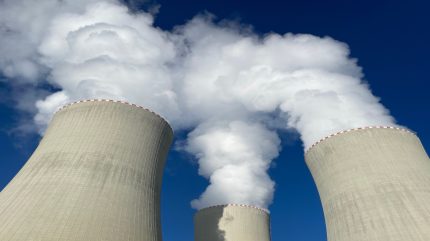
The World Bank lifted its long-standing ban on financing nuclear energy projects in developing countries in a move aimed at addressing growing electricity demands, as reported by Reuters.
This is a significant change from the institution’s 2013 decision to halt nuclear project funding.

Discover B2B Marketing That Performs
Combine business intelligence and editorial excellence to reach engaged professionals across 36 leading media platforms.
The bank, known for providing low-interest loans for infrastructure development, is now aligning its energy strategy to support the anticipated doubling of electricity demand in developing nations by 2035.
This will necessitate an investment surge from the current annual $280bn to meet the growing need for generation, grids and storage.
World Bank president Ajay Banga has been advocating for an “all of the above” energy approach since his appointment in June 2023, pushing for a broadened energy portfolio to help countries progress and achieve their development targets.
The World Bank Group plans to collaborate with the International Atomic Energy Agency to enhance advisory services on nuclear non-proliferation, safety and regulatory frameworks, supporting the extension of existing nuclear reactors’ life and the advancement of small modular reactors.

US Tariffs are shifting - will you react or anticipate?
Don’t let policy changes catch you off guard. Stay proactive with real-time data and expert analysis.
By GlobalDataWhile the nuclear energy funding received swift approval from the board, the stance on upstream natural gas projects remains contentious, with several countries expressing reservations.
Banga stated that further discussions are needed to reach a consensus on this matter.
The US, the largest shareholder in the World Bank, has been advocating for an end to the nuclear funding ban. This stance aligns with President Donald Trump’s withdrawal from the 2015 Paris Climate Agreement.
The bank’s new direction is expected to be well-received by the current US administration.
In March 2025, the US Department of Energy (DoE) released $56.7m from an up-to-$1.52bn loan guarantee to support the restart of Holtec’s 800MW Palisades nuclear plant in Michigan.
Despite the potential economic benefits, climate activists are concerned that increased funding for nuclear and natural gas projects could detract from the urgent need for developing countries to adapt to climate change and harness alternative energy sources such as solar.
The World Bank’s revised strategy aims to empower countries to choose their optimal energy mix, which could include solar, wind, geothermal, hydroelectric power, natural gas or nuclear options.
The bank remains committed to advising on and financing the retirement of coal plants and supporting carbon capture for industry and power generation, excluding enhanced oil recovery projects.





